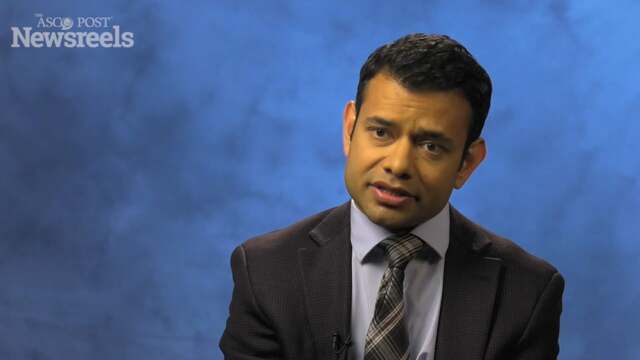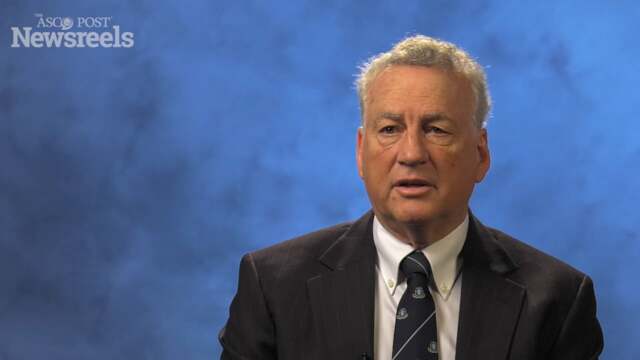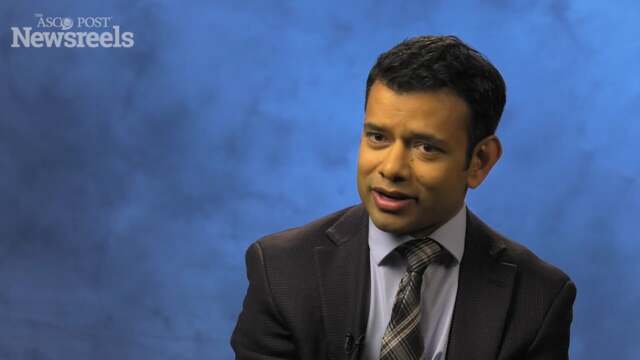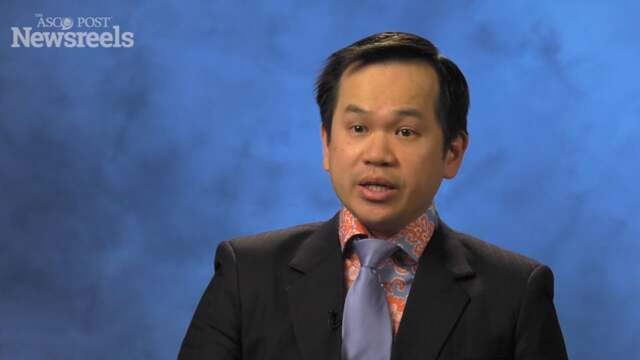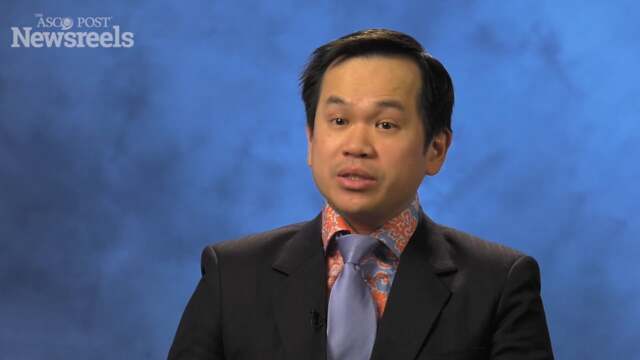George J. Bosl, MD, and Karim Fizazi, MD, PhD, on Germ Cell Tumors and Treatment Intensification: Pros and Cons
2017 Genitourinary Cancers Symposium
George J. Bosl, MD, of Memorial Sloan Kettering Cancer Center, and Karim Fizazi, MD, PhD, of Gustave Roussy and the University of Paris Sud, offer the “pro” and “con” viewpoints for treatment intensification in patients with poor-prognosis germ cell tumors with unfavorable marker decline.
Sumanta K. Pal, MD, of the City of Hope, discusses the evolution of circulating tumor DNA profile from first-line to second-line therapy in metastatic renal cell carcinoma. (Abstract 434)
L. Michael Glodé, MD, of the University of Colorado Cancer Center, discusses study findings on adjuvant androgen deprivation vs mitoxantrone plus prednisone plus ADT in high-risk prostate cancer patients following radical prostatectomy. (Abstract 2)
Sumanta K. Pal, MD, of the City of Hope, summarizes a session he co-chaired on the opportunities and challenges in systemic therapy for advanced renal cancer, including imaging as a biomarker of response and optimal selection of front-line treatments. (General Session 9)
Paul L. Nguyen, MD, of the Dana-Farber Cancer Institute, summarizes a session he co-chaired, which included discussion of Canadian vs U.S. guidelines; ProtecT; genomic and hereditary tests; and imaging to guide active surveillance. (General Session 1)
Paul L. Nguyen, MD, of the Dana-Farber Cancer Institute, discuses an evaluation of the Decipher prostate cancer classifier to predict metastasis and disease-specific mortality from genomic analysis of diagnostic needle biopsy specimens. (Abstract 4)
